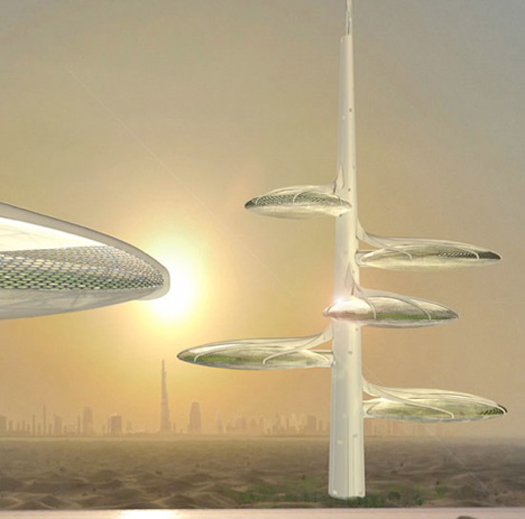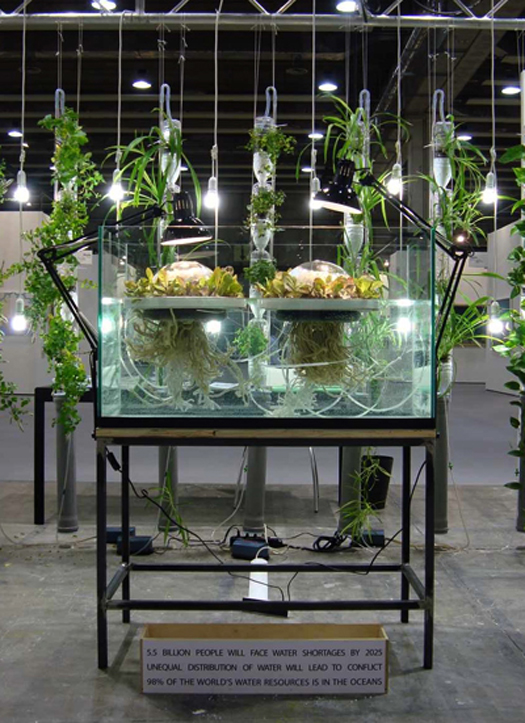
Scientists warn that most natural seafood could disappear by 2048. The tragedy is that fishermen, wholesalers, food processing firms, retailers, chefs and consumers, do not actively “want” to destroy the world’s fisheries. But they are prevented from seeing, and responding appropriately to, the bigger picture by the linear structure of supply and communication chains.
The thing is we now know how important it is to take whole systems into account when proposing designed solutions to these life-critical systems. But, as I wrote in an earlier post about fish systems and design some designers continue to propose wondrous solutions that fail to take whole system costs into account.
A good example of this was Studiomobile's concept for a vertical farming skyscraper in Dubai.
In this concept, seawater is used to cool and humidify greenhouses and to convert sufficient humidity back in to fresh water to irrigate the crops. This provides a fresh and humid climate for the crops that in these conditions "need very little water as they are not stressed by excessive transpiration."
As a technique, the use of seawater to cool and humidify greenhouses has the potential to make sense in regions where fresh water supplies are limited. Large tracts of the planet fall into this category. The trouble is that putting farms into skyscrapers — with or without seawater systems — is highly unlikely to make economic or environmental sense once the embodied energy costs of their construction and operation are factored in. Attention-grabbing design 'concepts' can do more harm than good if they distract attention from the true costs their implementation would entail.
In Dubai — desert-home of indoor ski-slopes and perpetual shopping — these considerations may not count for much. But in the rest of the world, designers really do need to adopt a whole systems approach if their proposals are to be sustainable in the real sense of the word.
I am more optimistic about Studiomobile's more recent prototype [below] for a Jellyfish Farm.

Presented at a recent edition of ArtVerona in Italy, their installation proposes a form of floating and vertical bio-desalination machine. "The object proposes a kind of neo-nature" says Studiomobile, in which "an autonomous living organism is put to practical daily use."
I don't know if anyone from Studiomobile will be there, but if you you are in or near Treviso this coming weekend, I'm speaking at the city's three day festival of sustainable design — and we can debate vertical farms face to face.
Disclaimer: I have not seen the installation in person — but something tells me they are not real jellyfish.

